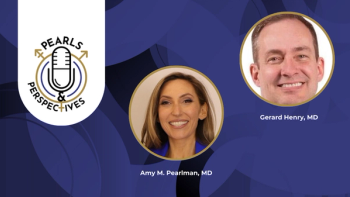
Expert offers advice on implementing a prostate cancer support program within a practice
Key Takeaways
- Tailor the program to available resources and staff, ensuring it fits the specific practice environment.
- Consistent patient-provider interactions enhance patient experience, though not always possible in every setting.
"Every practice is going to be a little bit different on how they would like to approach this," says Michael Jenson, PA-C.
In this video, Michael Jenson, PA-C, offers advice for implementing a Surgical Impotence Management Strategy program. Jenson is a physician’s assistant with Minnesota Urology.
Transcription:
What advice would you give health care professionals interested in implementing an initiative like the Surgical Impotence Management Strategy program?
I think it is extremely helpful. Every practice is going to be a little bit different on how they would like to approach this. Not everyone has the same resources, the same staff, that they're able to, where our group I'm a dedicated provider to a lot of the rehabilitation. I do a lot of men's health as well, but I pretty much see majority of our patients within a large half of our practice, and then the other half of the practice also has someone that does that. So having that connection to the patients, where they're going to see a familiar face that gave the lecture to them initially, that's following up with them via portal and then seeing them afterwards, that consistency is nice, but not everyone's going to have that. So it's finding what works really best for you and what you have available, and it's information. Information is always going to be beneficial. A lot of the time, you're going to have patients that go into the family tumor conference is what we call it, where they're sitting down talking about all the treatment options. They're hearing cancer surgery, radiation. They're not focusing on the other things that are mentioned by the physician, the side effects associated to each thing, what to expect shortly after. They're overwhelmed in that initial visit, so having that separate time to process that and then talk with another provider about the other stuff. Now, they've processed the cancer, they've processed what's their decision? It's kind of now focusing on a little bit of the stuff that might have been overlooked by the patient and the family.
This transcript was AI generated and edited by human editors for clarity.
Newsletter
Stay current with the latest urology news and practice-changing insights — sign up now for the essential updates every urologist needs.






